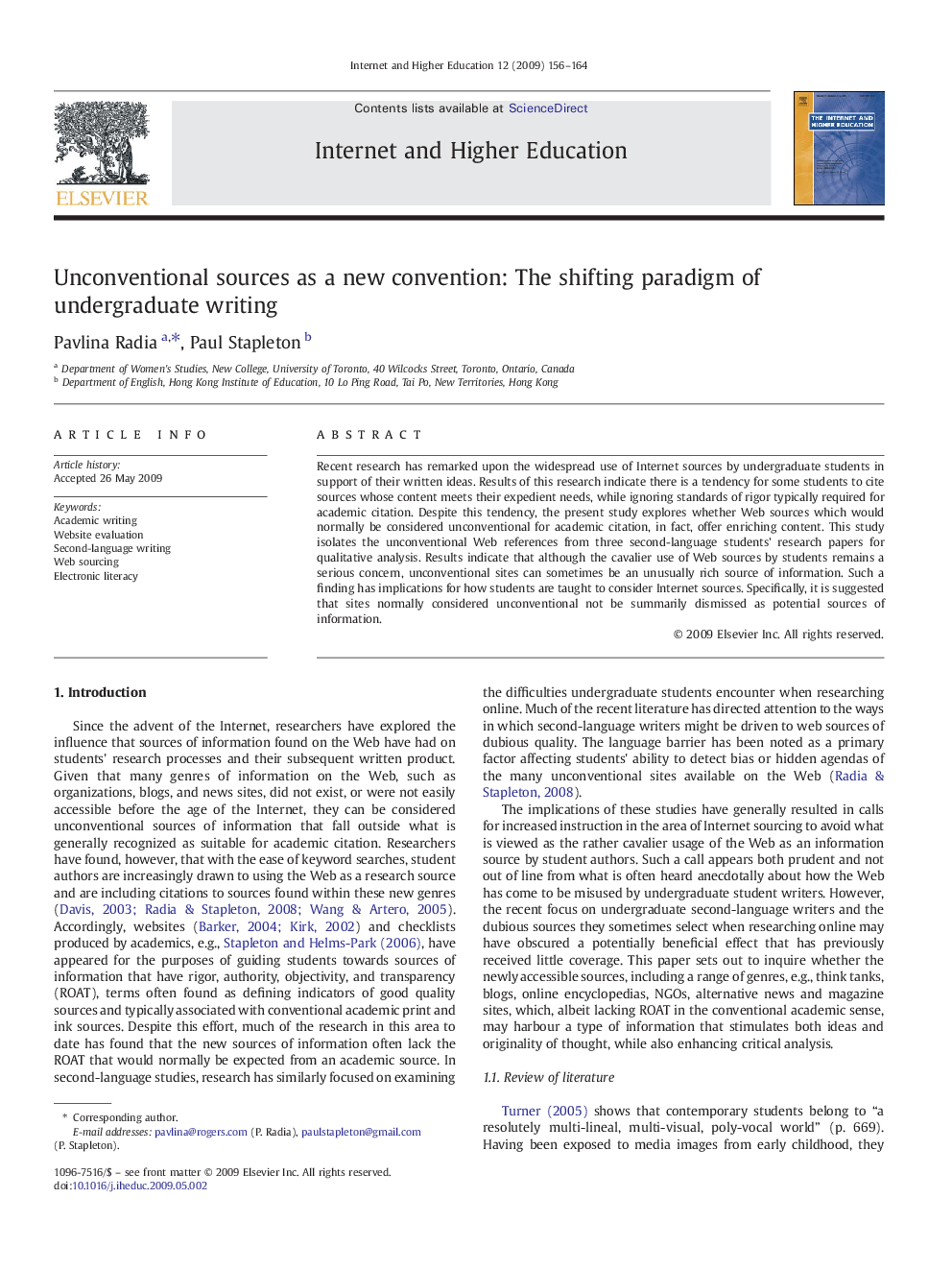| Article ID | Journal | Published Year | Pages | File Type |
|---|---|---|---|---|
| 357920 | The Internet and Higher Education | 2009 | 9 Pages |
Recent research has remarked upon the widespread use of Internet sources by undergraduate students in support of their written ideas. Results of this research indicate there is a tendency for some students to cite sources whose content meets their expedient needs, while ignoring standards of rigor typically required for academic citation. Despite this tendency, the present study explores whether Web sources which would normally be considered unconventional for academic citation, in fact, offer enriching content. This study isolates the unconventional Web references from three second-language students' research papers for qualitative analysis. Results indicate that although the cavalier use of Web sources by students remains a serious concern, unconventional sites can sometimes be an unusually rich source of information. Such a finding has implications for how students are taught to consider Internet sources. Specifically, it is suggested that sites normally considered unconventional not be summarily dismissed as potential sources of information.
